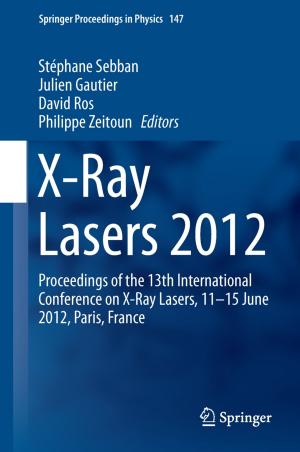Kelsenian Legal Science and the Nature of Law
Nonfiction, Reference & Language, Law, Reference, Religion & Spirituality, Philosophy| Author: | ISBN: | 9783319518176 | |
| Publisher: | Springer International Publishing | Publication: | May 16, 2017 |
| Imprint: | Springer | Language: | English |
| Author: | |
| ISBN: | 9783319518176 |
| Publisher: | Springer International Publishing |
| Publication: | May 16, 2017 |
| Imprint: | Springer |
| Language: | English |
This book critically examines the conception of legal science and the nature of law developed by Hans Kelsen. It provides a single, dedicated space for a range of established European scholars to engage with the influential work of this Austrian jurist, legal philosopher, and political philosopher.
The introduction provides a thematization of the Kelsenian notion of law as a legal science. Divided into six parts, the chapter contributions feature distinct levels of analysis. Overall, the structure of the book provides a sustained reflection upon central aspects of Kelsenian legal science and the nature of law.
Parts one and two examine the validity of the project of Kelsenian legal science with particular reference to the social fact thesis, the notion of a science of positive law and the specifically Kelsenian concept of the basic norm (Grundnorm). The next three parts engage in a critical analysis of the relationship of Kelsenian legal science to constitutionalism, practical reason, and human rights.
The last part involves an examination of the continued pertinence of Kelsenian legal science as a theory of the nature of law with a particular focus upon contemporary non-positivist theories of law. The conclusion discusses the increasing distance of contemporary theories of legal positivism from a Kelsenian notion of legal science in its consideration of the nature of law.
This book critically examines the conception of legal science and the nature of law developed by Hans Kelsen. It provides a single, dedicated space for a range of established European scholars to engage with the influential work of this Austrian jurist, legal philosopher, and political philosopher.
The introduction provides a thematization of the Kelsenian notion of law as a legal science. Divided into six parts, the chapter contributions feature distinct levels of analysis. Overall, the structure of the book provides a sustained reflection upon central aspects of Kelsenian legal science and the nature of law.
Parts one and two examine the validity of the project of Kelsenian legal science with particular reference to the social fact thesis, the notion of a science of positive law and the specifically Kelsenian concept of the basic norm (Grundnorm). The next three parts engage in a critical analysis of the relationship of Kelsenian legal science to constitutionalism, practical reason, and human rights.
The last part involves an examination of the continued pertinence of Kelsenian legal science as a theory of the nature of law with a particular focus upon contemporary non-positivist theories of law. The conclusion discusses the increasing distance of contemporary theories of legal positivism from a Kelsenian notion of legal science in its consideration of the nature of law.















